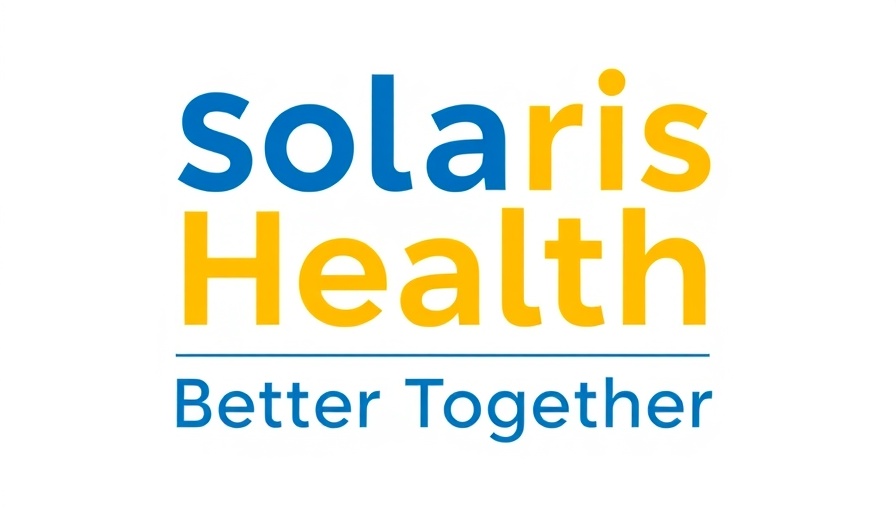
The Strategic Expansion of Cardinal Health in Urology
Recently, Cardinal Health announced its intention to acquire Solaris Health for a striking $1.9 billion, a development that reflects its commitment to enhancing urology services across the United States. The acquisition will see Cardinal Health acquire approximately 75% of Solaris Health, reinforcing its position within the Specialty Alliance—a multi-specialty management services organization (MSO). With the healthcare landscape rapidly evolving, this acquisition highlights Cardinal Health's proactive steps to address a growing demand in urology.
Understanding the Urology Shortage Threatening Patient Care
The timing of this acquisition is particularly crucial given the alarming shortage of urologists in the U.S. Research indicates that a staggering 62% of U.S. counties lack even one practicing urologist. This situation is exacerbated by the fact that retirements in the field severely outpace new entrants; for every ten urologists who retire, only one new specialist joins the ranks. As a result, patients—especially those in rural communities—often experience delays in diagnosis and treatment, leading to advanced-stage health conditions and increased health inequities.
Building the Urology Alliance: A Collaborative Forward
Through this acquisition, Cardinal Health plans to establish the Urology Alliance, a collaborative network of urology providers aimed at addressing these critical shortages. This initiative joins recent acquisitions such as Urology America and Potomac Urology, creating a robust platform intended to improve patient access to care and streamline the referral processes within urology. For concierge health practitioners, integrating with such a network could enhance practice standing within their communities, offering not just improved patient outcomes, but also a competitive edge in a crowded healthcare market.
Market Response and Financial Impact
The financial implications of this acquisition have already begun to unfold. Cardinal Health’s latest quarterly earnings report highlighted a profit per share of $2.08, surpassing expectations, yet their overall revenue of $60.2 billion fell short of forecasts. This mismatch led to a notable stock drop, dipping over 11% in pre-market trading. However, the share price has shown signs of recovery, indicating that investors may be considering the long-term benefits of the acquisition.
What Does This Mean for Concierge Health Practitioners?
For practitioners in the concierge health model who may feel overwhelmed by the complexities of technology and market changes, the establishment of networks like the Urology Alliance offers a pathway for collaboration and shared resources. Engaging with a larger network can provide support in navigating the technological landscape, reducing the burden of practice management, and allowing physicians to focus more on patient care rather than administrative burdens.
In conclusion, as Cardinal Health forges ahead with its acquisition of Solaris Health, the ripple effects of this decision are poised to reshape the urology landscape in the U.S., fostering improved patient access and care while offering new opportunities for collaboration among healthcare providers. Staying informed and considering strategic partnerships within such evolving networks could be essential for ensuring longevity and success in the healthcare sector.
 Add Row
Add Row  Add
Add 




Write A Comment